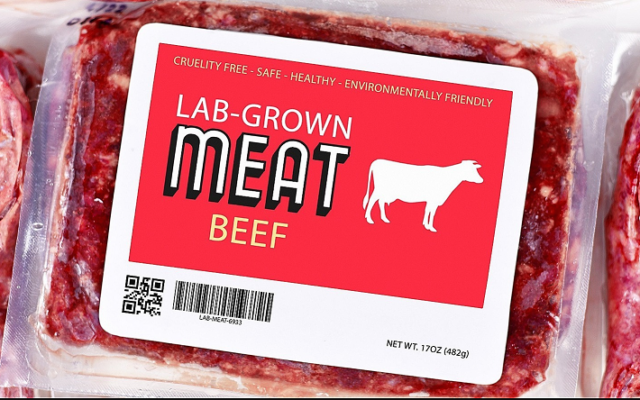Lab Grown Meat Gets Orthodox Union Approval
Decision to accept lab grown meat by SuperMeats, an Israeli company, is considered an important step for the growth of the industry.
The world’s largest kosher food certification program, Orthodox Union Kosher, has for the first time certified a lab-grown meat product as kosher, earning the coveted O-U symbol for the products. The Israeli food company that earned the certification is SuperMeats, which has a factory that grows meat products in the central Israeli town of Ness Ziona.
Rabbi Menachem Genach, CEO of the Orthodox Union’s kosher division, told the Times of Israel that the certification could have a potentially important payoff in the years ahead.
“It’s a big deal because, just in terms of the technology itself, not just in poultry, but in meat, it may have real significance for the future.”
The lab grown chicken was produced by harvesting stem cells which were then grown in enclosed metal vessels which provide warmth, oxygen, and nutrition. Growth occurs just as it would as if it were part of a chicken’s body, but much faster. The finished meat product is then harvested and prepared for sale.
According to the Orthodox Union, because the stem cells are not taken from a living animal, the product is considered acceptable. It cooks up much the same as if it was a regular chicken product, such as a thigh, breast, or leg. Because the manufacturing process is controlled in a highly efficient commercial factory where the meat doubles in useable mass every two hours, there is no slaughter of live animals, so the spread of animal disease is controlled. It’s also environmentally friendly because, according to industry estimates, lab grown meat uses 78 percent less water and takes up 95 percent less land use.

The lab grown SuperMeats chicken from Israel is recognized as kosher Mehadrin meat, meaning it meets the most stringent requirements for kosher product certification.
Today, Israel is second only to the United States in terms of the growth of the new industry. Three of the first eight cultivated meat plants in the world are in Israel, the result of a nearly $4 billion investment there in the last three years.
The Orthodox ruling follows a decision last January that not only is lab grown meat kosher it may also be pareve, neither meat nor milk for dietary purposes. Rabbi David Lau, the Chief Rabbi of the Ashkenazic community in Israel, ruled that because the meat does not come from a slaughtered animal and does not contain blood it is a vegetable product.
Whatever opinion finally wins out in the world, the acceptance by important religious leaders like Rabbi Lau and Rabbi Genach is likely to help the commercial image of a product that few thought would ever gain consumer acceptance.
Helping that process along was a government ruling early last month that removed one of the last remaining barriers to commercial production in the United States.
The U.S. Department of Agriculture approved chicken products made from chicken cells. Last year, the products made by the two companies that were involved in the regulatory action, Good Meat and Upside Foods, were certified as safe to eat by the Food and Drug Administration.
The first chicken products in the U.S will be initially marketed to restaurants and commercial food providers.
This year, Israel’s meat labs are targeting the Middle East and the Asia-Pacific region for their first product launches. Much of these two regions already import most of their beef because of a climate that is not suitable for cattle ranching and temperatures that are too high for animal growth. In the United States, companies are hoping that because the products are grown in a sustainable environment and don’t involve animal slaughter, they will appeal, initially, to an influential market segment.
For those who follow kosher dietary laws, the world kosher meat business is expected to be valued at $100 billion by 2030.
For the Orthodox community, the approval of the basic technology is likely to increase the demand for meat which up to now has not been available because it comes from parts of the animal that are not allowed.
Still, the primary concern for the Orthodox Union is the need for standardization in the rapidly evolving world of factory produced meat.
Rabbi Genach hopes his pioneering halachic decision will result in the more rapid growth of the industry.
“I hope it will be a gateway to trying to find consensus among different supervising agencies in terms of what the standards should be for lab-grown meat,” Rabbi Genach said. “We’re hoping that this will set the trend. One of our goals that we would like to do is to have something that is universally accepted.”




comments